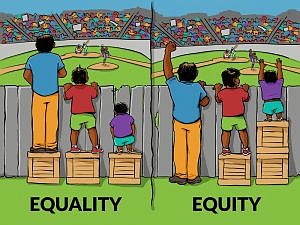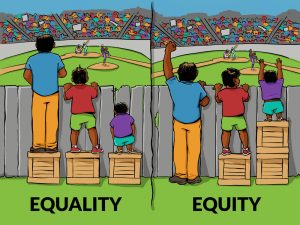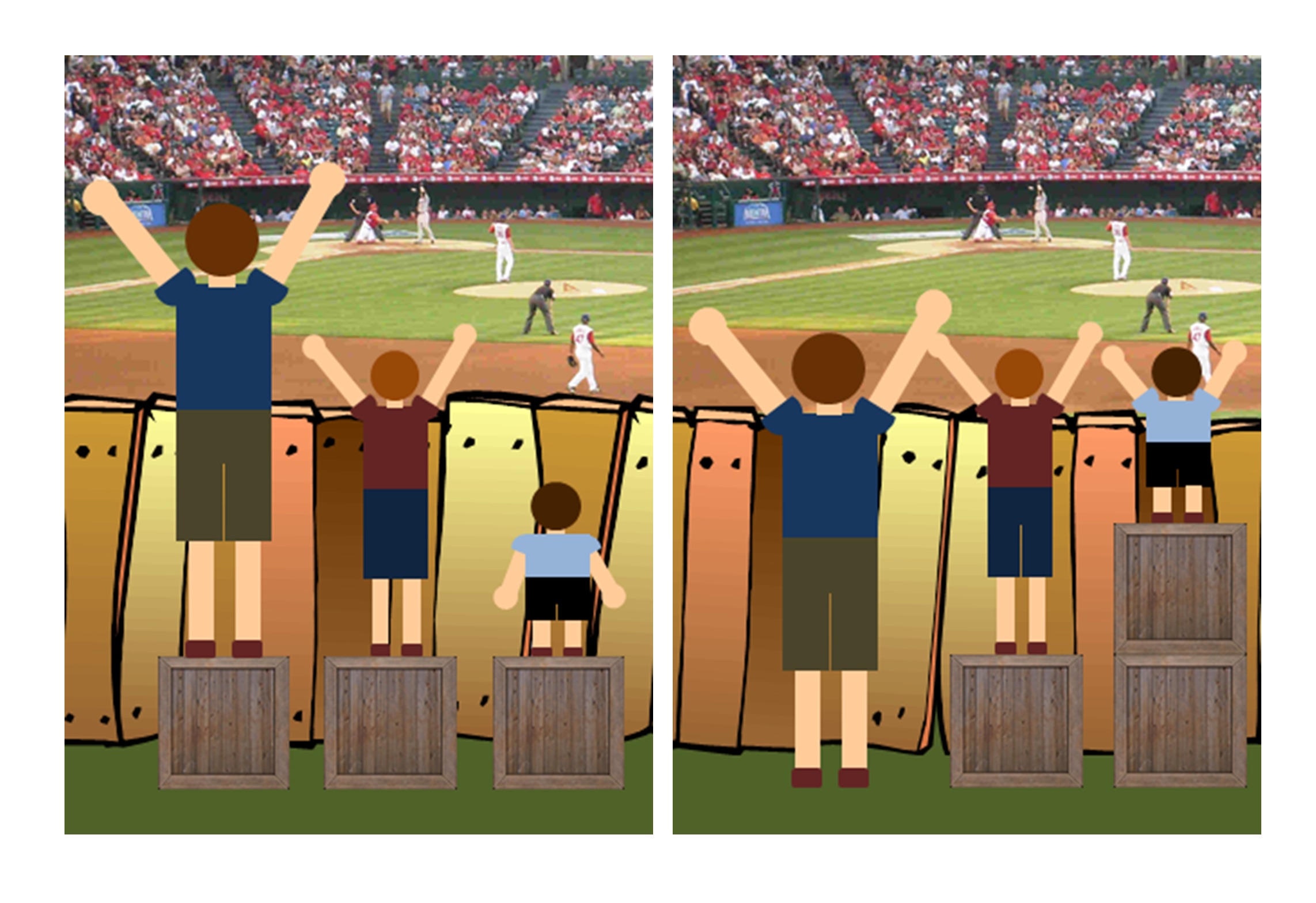Your third-grader is a whiz at reading, but he's having trouble in math.
You understand. You've always had trouble with math, too, you tell his teacher - a very capable instructor who has good scores for her students' overall academic gains from year to year.
But your son's math struggle worries you, especially since he tells everyone he wants to be an architect and build tall buildings. To help him, you enroll him in a private summer tutoring program.
What you've done demonstrates the difference in equality in education and equity in education.
Your son has had a level playing field in his classroom with a good teacher. That was equality. But his need in understanding math concepts exceeds that of his fellow third-graders. When you met that extra need with extra help, that was equity.
There is a common misconception that equity and equality mean the same thing - and that they can be used interchangeably, especially when we're talking about education, according to The Education Trust. But the truth is they do not - and cannot.
Your son is lucky. You recognize his extra need, and you can afford the extra, outside help. But many families - especially in economically disadvantaged and minority neighborhoods - are not so lucky. That's why Hamilton County recently hired an outside firm, The Howard Group, to help a district task force address inequity in our school system.
And when a high percentage of those poorer children are concentrated in one school or - like here - in several schools in a particular part of town, the result can be devastating for our entire region. The scores of those lowest performing schools skew everything. Among 44,000 students in Hamilton County, 60 percent of third-graders cannot read at grade level, and 60 percent of our high school graduates are not jobs-ready.
When prospective employers look to build manufacturing or distribution plants here, those are not inviting numbers. If those new plants go somewhere else, our community loses jobs and tax revenue.
Yes, fixing education equity - like all extras - costs dollars we feel we don't have. We don't even know yet what that extra cost might be. But losing industry is costly, too. So are the lost wages and future lost productivity for the 60 percent of third-graders not reading well enough to continue learning on their own in grades 4-12.
If we don't figure out a way to address those extra needs now, we will continue to cheat our entire Chattanooga and Hamilton County economy - just as you would cheat your own third-grader if you let him continue to fail math.


